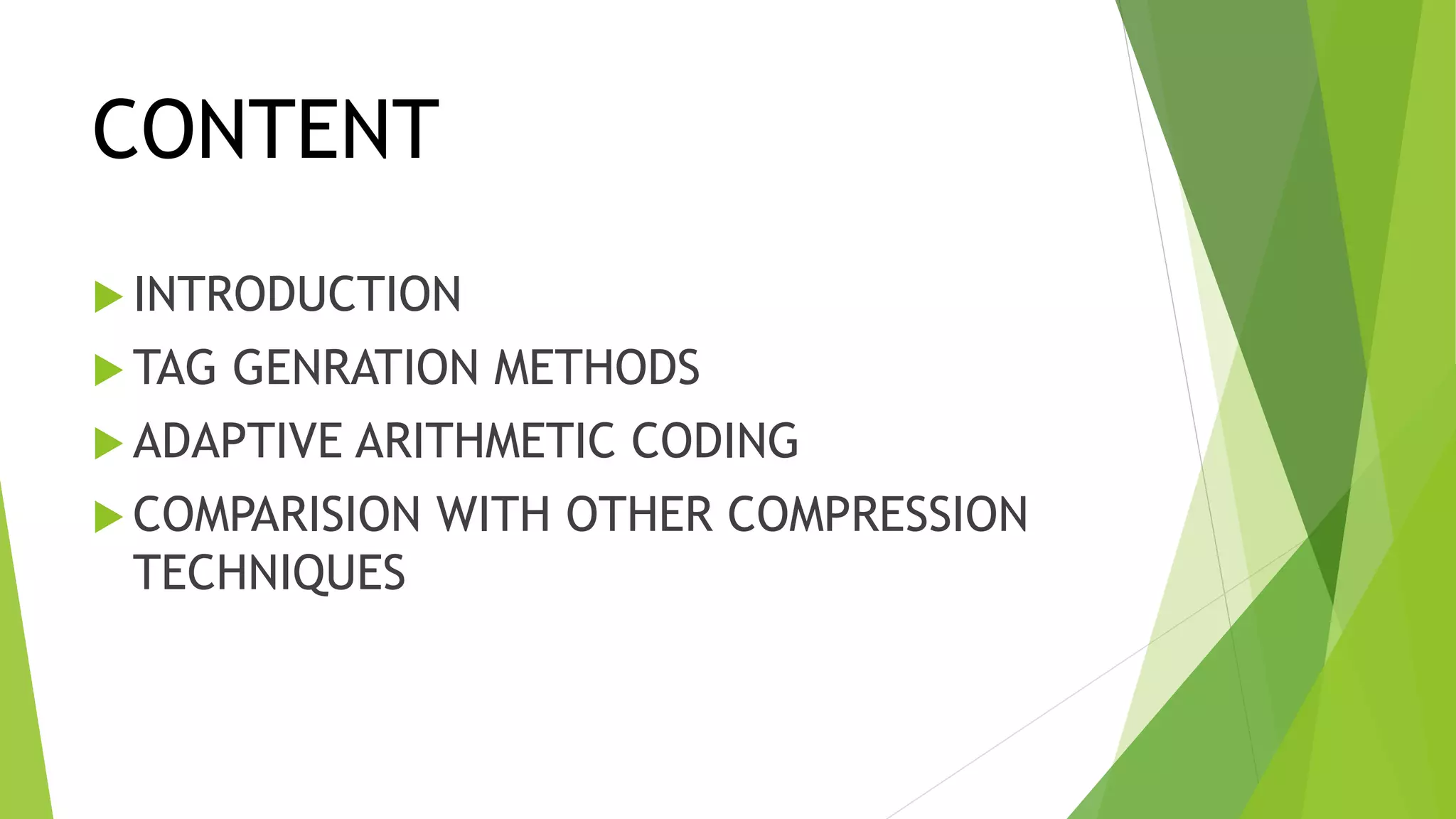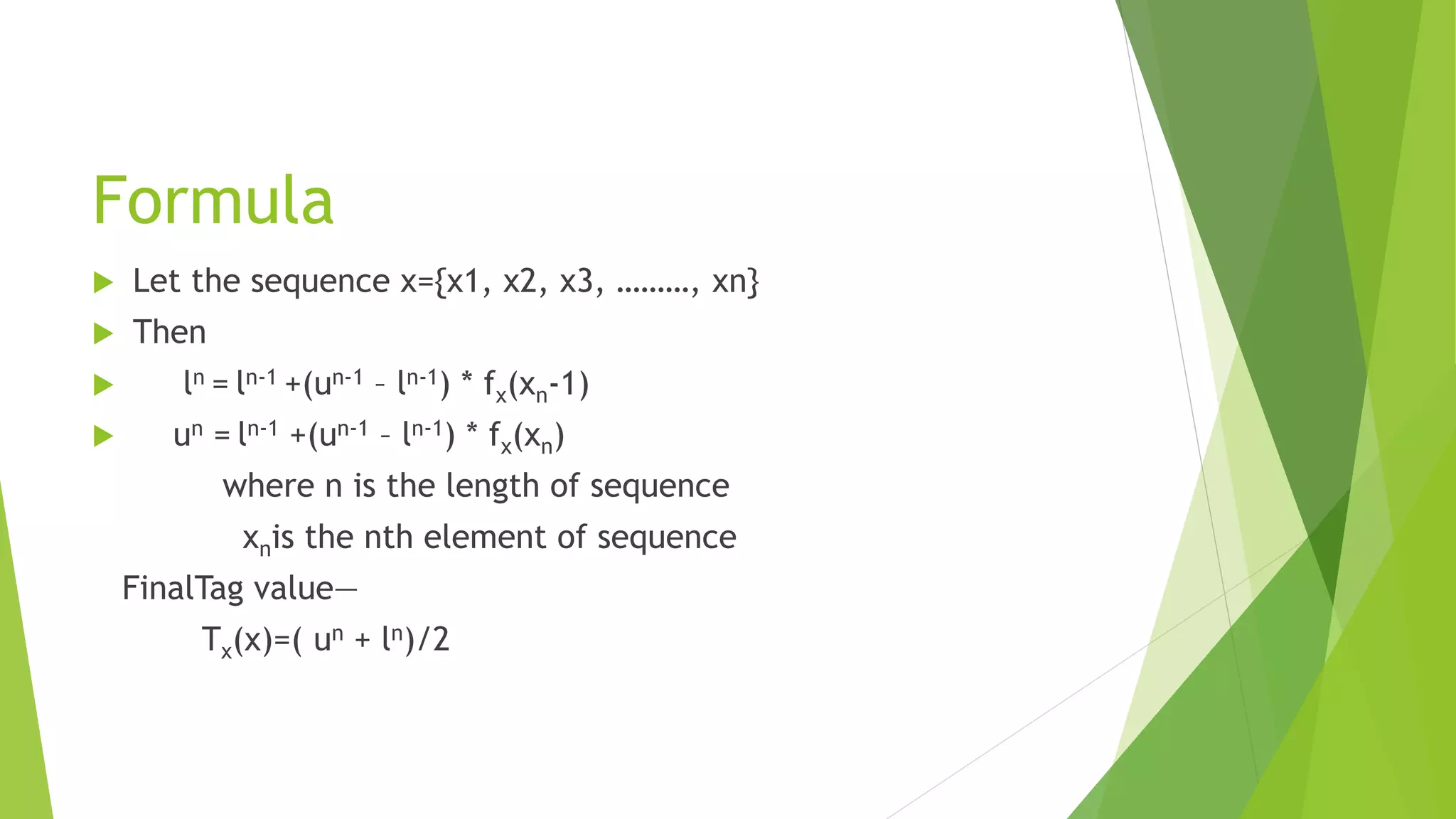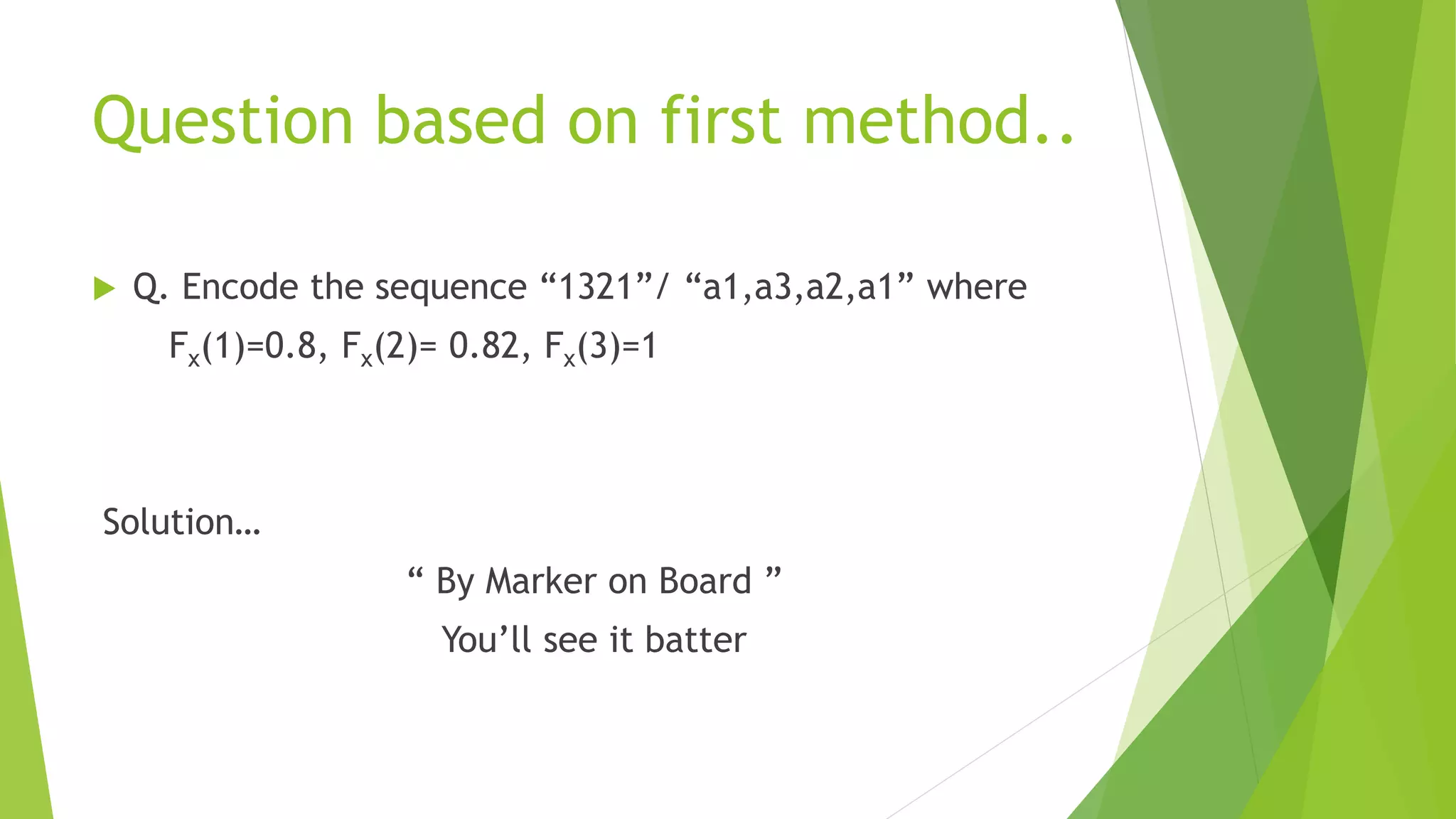Arithmetic coding is a lossless data compression technique that assigns a unique identifier, or "tag", to sequences of symbols. The tag value always lies between 0 and 1. There are two main methods for generating tags: assigning fractions between 0 and 1, or dividing the range into halves and assigning tags to the lower or upper half. Adaptive arithmetic coding allows the frequency table to change while processing data to better match the encoded data to the original. Arithmetic coding provides better compression than Huffman coding and has lower complexity due to using fewer arithmetic operations.


![Introduction
Arithmetic coding is a form of entropy encoding used
in lossless data compression .
It is a method of generating variable length code.
Arithmetic coding is useful when we are dealing with
source with small alphabet ar binary sources.
In arithmetic coding a unique identifier used for
distinguish a sequence of symbol from another
sequence of symbol ,called “TAG”.
Tag value always lies between [0,1]](https://image.slidesharecdn.com/multimediappt-190420162636/75/arithmetic-and-adaptive-arithmetic-coding-3-2048.jpg)
![Tag Generation Methods
Tag generation in terms
of binary fraction value
In this method tag value lies
between
[0,1] .
where
0-lower limit
1- upper limit
Tag generation with
scaling method
In this method [0,1] divides in two
parts…
[0 ,1]
lower half upper
half [0,0.5] [0.5,1]
send-0 send-1
E1(x)=2x E2(x)=2(x-0.5)](https://image.slidesharecdn.com/multimediappt-190420162636/75/arithmetic-and-adaptive-arithmetic-coding-4-2048.jpg)




